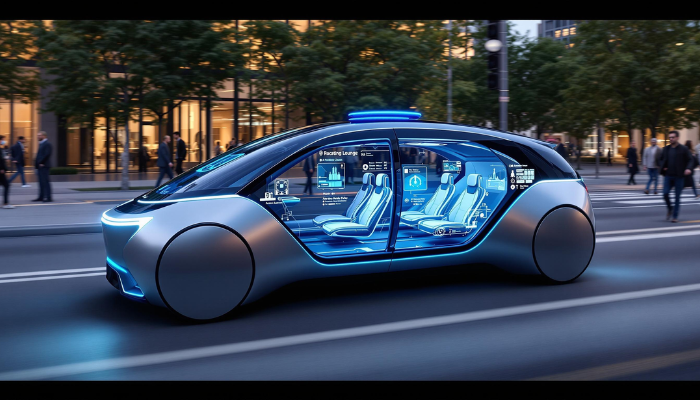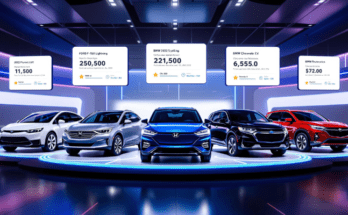Introduction
Self-driving cars have been on everyone’s lips for years now, technology and automotive giants spening millions on R&D. The self-driving cars will most definitely be part of our society in years to come and they will change the way we commute. So, welcome to 2025, let’s look at the trends that are coming to the self-driving cars industry and how can they change our life?
Self-driving car: Which technologies enable it?
As time goes by, self-driving cars are developed and safe to use… The key technology applied to these vehicles is Advanced Driver-assistance Systems (ADAS) which describe the utilization of detectors, cameras, radar and additional systems to offer the last word in vehicle autonomy. Some of the primary functions of these systems include; navigation, realization of obstacles in the path, control of speed and backup of emergency braking.
By 2025, the self-driving car would have better sensing devices and cameras to acquire real-time data enhancing their decision-making system. LIDAR (Light Detection and Ranging) will continue to be used in the collection of information about the environment around the vehicle using light ranging from laser. Merged with this technology, machine learning algorithms will help the self-driving cars to be in a position to perceive the traffic signals, pedestrians and other cars on the road.
Electric and hybrid cars
The public pressure pushes car makers to release more eco-friendly models; therefore, self-driving cars in 2025 will mainly consist of electric and hybrid vehicles. Automobile manufactures such as Tesla, Chevrolet and Nissan have already started implementing electric cars and much more so with the implementation of self-automated transportation.
The overall of advantages of electric cars over traditional gasoline-powered vehicles are lower operating costs, lesser emissions, and less frequent refueling. We are likely to find the demand for charging infrastructure for self-driving cars rising as more people embrace the new technology. This means that governments and private companies are expected to invest in the augmentation of the number of ‘electric vehicle charging stations’.
Consequence on Automotive Industry
Self-driving cars are already on the horizon, and they will bring massive changes to the automotive industry by changing its landscape in the way that everyone in the industry will have to adjust to. The fact is that as consumers’ expectations grow higher and they inquire more sophisticated safety systems, auto-makers will have to adopt new technologies into their vehicle. Furthermore, to accommodate the unique supply chains necessary for the self-driving cars, the companies will have to come up with new designs.
Then there are prospect of new jobs in services associated with self driving cars — apart from software developers, data analysts or cybersecurity experts. These are roles that corporations are going to need people who specialize in these areas to help make their self-driving vehicles safer and more efficient.
Changing the Way We Commute
Undoubtedly one of the greatest benefits of these self-driving cars in 2025 is going to be with how we drive. Self-driving automobiles will reduce the number of vehicles available for individual use, and more important, will provide people the kind of transport they desire most at practically convenient, comfortable, and efficient rates. Riders can attend to phone calls, read, or even have a cool off time during their daily ride to work, or anywhere they are going without thinking about traffic or where to park.
Furthermore, self-driving cars may result in axing of cars from the road since the owners will rely on the shared cars instead of owning unique cars. It could thus someday ease traffic jam and lessen the amount of pollutants emitted within urban areas.
Safety and Liability Concerns
As advanced self-driving cars are expected to change how the transport industry works, questions have arisen over things like safety and responsibility. These are specialty vehicles that rely on sophisticated systems, and they are therefore vulnerable to possible system failure or a software bug. Of course, like any other new technology, there is also a potential danger that hackers will be able to gain control over a car or simply reprogram it.
Hence, the governments in 2025 are expected to enact new rules and regulations in regard to these safety and accountability issues to the self-driving cars. Over time, as more automations are rolled out, the insurance companies will not except to expand their policies to include any damage or incidences that can take place with autonomous vehicles.
The Road Ahead
In few years specifically towards 2025 the field of self-driving automobiles is going to revolutionarise the transportation leading to safer roads and better life. The technological progress, as well as the use of electric cars goes all in favor of the perspective of the autonomous transportation. However, from these challenges and concerns, fans of the industry can continually look forward to increased growth and development resulting in brighter connected world.




